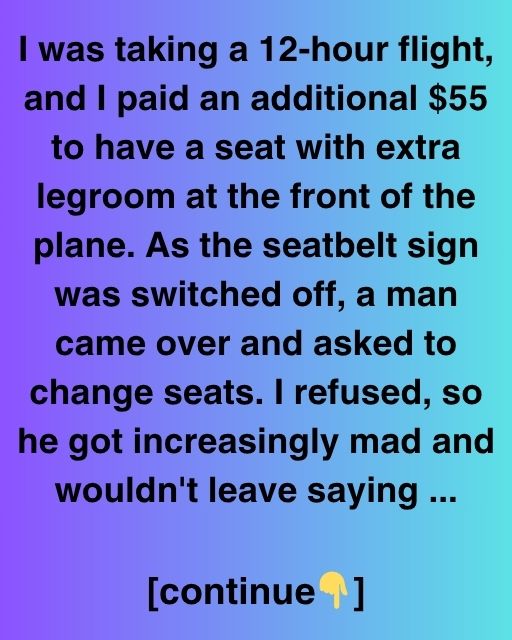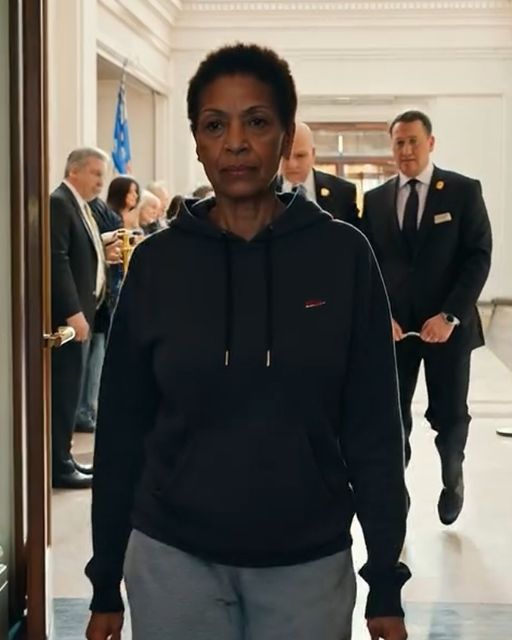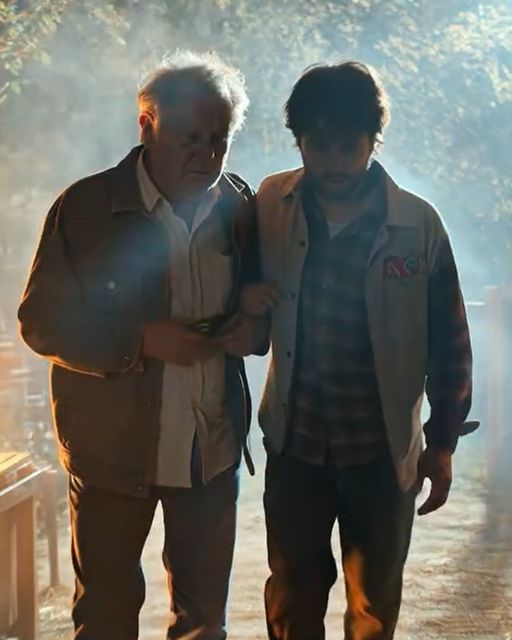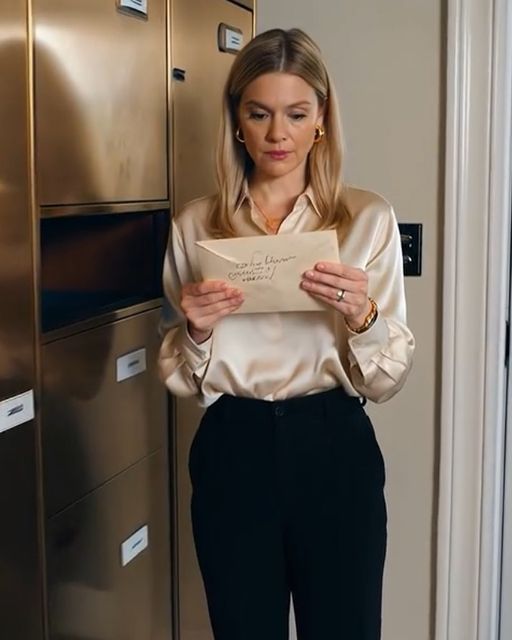I was taking a 12-hour flight, and I paid an additional $55 to have a seat with extra legroom at the front of the plane. As the seatbelt sign was switched off, a man came over and asked to change seats.
I refused, so he got increasingly mad and wouldn’t leave saying he needed the seat because he had a bad knee. I told him I understood but I also paid extra and needed the legroom myself.
His voice rose and people nearby started to stare. He muttered under his breath, calling me selfish, and I felt my face turn red with embarrassment and frustration.
The flight attendant came by, a petite woman with dark hair pulled into a bun, and asked what was going on. Before I could explain, the man cut in, saying I was refusing to help someone with a medical issue. The flight attendant looked from him to me, her eyes soft but firm.
She asked if I’d like to change. I hesitated, feeling guilty, but reminded her I’d paid extra. She nodded and politely asked the man to return to his seat until they could check if another passenger might switch with him.
He stomped back to his seat a few rows behind, shaking his head. I could hear him muttering every few minutes, and it made it hard to relax.
I kept wondering if I’d done the wrong thing, if maybe I should’ve just let him have the seat even if I’d be cramped for twelve long hours. But my knees weren’t great either, and the last time I’d flown long-haul, I limped for a week after.
About an hour later, the flight attendant returned with a smile and said someone else with a regular seat near the back had agreed to swap with him.
She guided him down the aisle, and he shot me a dirty look as he passed, but I felt a weight lift from my chest. I tried to settle in, watching the in-flight movie, but the encounter kept replaying in my mind.
A few rows across from me, a woman with curly hair leaned over and said, “You did the right thing, you know.” I looked at her, surprised, and she smiled.
“My husband has knee issues too, but we always plan ahead. It’s not your fault he didn’t.” I thanked her quietly, grateful for the reassurance. The kindness of a stranger felt like a warm blanket in the cold, stale air of the cabin.
As the hours crawled by, I tried to sleep but couldn’t quite get comfortable. I got up to stretch in the galley and noticed the flight attendant standing near the drinks cart. She smiled when she saw me. “Rough start, huh?” she said softly.
I nodded, and she handed me a cup of water. “Some people think their problems are the only ones that matter,” she continued. “But you’re not responsible for fixing everyone’s day.” Her words eased the tightness in my chest.
I shuffled back to my seat, determined to make the best of the flight. A few hours later, as they served breakfast, I noticed the same man standing in the aisle. He was leaning on the seat backs, shifting uncomfortably.
I wondered if his knee really did hurt as badly as he said. Maybe I’d been too quick to judge. But then I remembered how he’d tried to bully me into giving up my seat, and I reminded myself I wasn’t obligated to give in to someone else’s anger.
As I finished the dry scrambled eggs and rubbery potatoes, the woman across the aisle caught my eye again. She told me she was traveling for her father’s funeral.
I expressed my condolences, and she told me about her dad, how he loved old cars and taught her how to fix them when she was a teenager. Her voice trembled as she spoke, and I realized everyone on this plane had their own stories, their own reasons for needing kindness or space.
We chatted for a while, and it felt good to connect with another human being after the cold exchange earlier. She told me her name was Lillian, and she was flying from Seattle to see her mother, who was struggling after her father’s passing.
Lillian worried her mom might give up on living alone and fall into depression. I shared a bit about my own parents and how I’d almost lost my dad to a heart attack the year before. The hours seemed to move faster as we talked.
Eventually, Lillian fell asleep, her head resting against the window. I watched her breathe slowly and realized how rare it is to have moments of real connection with strangers. The man who’d demanded my seat was quiet now, and I couldn’t see him from my spot. I wondered if he was resting or still angry.
About two hours before landing, turbulence shook the plane. The seatbelt sign lit up, and the cabin lights flickered briefly. A sudden jolt sent my heart racing, and I gripped the armrests as the plane dipped. Gasps filled the cabin.
A flight attendant’s calm voice came over the speaker, telling everyone to stay seated. My mind went to dark places, thinking about what I’d say if this was it. I thought about my family, my friends, the things I wished I’d done.
When the plane leveled out, I let out a shaky breath. The cabin was silent except for the hum of the engines. A few people were crying quietly. I looked over at Lillian, who was awake now and clutching her seatbelt with white knuckles. I reached across the aisle and squeezed her hand. She gave me a grateful look, tears shimmering in her eyes.
As the flight attendants made their way down the aisle to check on everyone, I noticed the man from earlier waving frantically. His face was pale, and he was sweating.
One of the attendants stopped beside him, and I heard him say he felt like he might faint. She helped him adjust his seat and brought him water. A doctor sitting near him introduced himself and asked if he could check on him. The man nodded weakly.
Watching him struggle, I felt my resentment dissolve. He was clearly in pain and probably scared. I thought about how I’d felt during the turbulence—helpless and afraid—and realized maybe he was acting out of fear the whole time. When the doctor finished checking him, the flight attendant brought an oxygen tank, and they helped him breathe more comfortably.
As they worked, the woman in the row behind him started complaining loudly about how she couldn’t recline her seat. The doctor turned to her and explained calmly that the man was having a medical emergency.
She rolled her eyes and muttered something about “people faking it for attention.” I felt a wave of anger rise in me. I’d spent hours wondering if I’d been selfish, and now I saw how some people could be truly unkind.
But then something surprising happened. Another passenger, a teenager with braces and messy hair, stood up and said loudly, “Hey, he’s sick. Can’t you just chill for a bit?” The woman turned bright red and sank back into her seat, crossing her arms.
A ripple of quiet agreement moved through the nearby passengers. The teen sat down, and someone patted him on the shoulder. I felt hope flicker in my chest—maybe there was more kindness in the world than I’d thought.
The man stabilized after a while, and the doctor assured everyone he’d be okay until we landed. I caught his eye across the cabin, and he mouthed “thank you.” I nodded, my heart unexpectedly warm.
The flight attendants checked on him regularly, and people nearby offered water or blankets. It felt like the atmosphere on the plane had shifted, like we’d all remembered we were in this together.
As we began our descent, the captain announced we’d land on time. The city lights glittered below, and I found myself tearing up. I thought about how easy it is to get caught up in our own discomforts and frustrations, to forget the struggles others carry.
I remembered how embarrassed I’d been when the man called me selfish, and how ashamed I felt watching someone else treat him without compassion later.
When we landed, people were quiet as we taxied to the gate. The seatbelt sign turned off, and everyone stood up slowly, gathering their belongings. The flight attendants moved quickly to help the man off the plane first, with the doctor walking beside him.
As he passed my seat, he paused, looked me in the eye, and said, “I’m sorry for earlier. Thank you for understanding.” His words stunned me. I told him I hoped he’d feel better soon.
The apology felt like a heavy stone lifted from my chest. I realized he probably hadn’t meant to be rude but had been desperate and in pain. And maybe I hadn’t been as heartless as I’d feared—I’d just needed to stand up for myself in the moment. Seeing him vulnerable, hearing his thanks, made everything that happened feel worth it.
I grabbed my bag and stepped into the aisle. Lillian was waiting for me, and we walked off the plane together. She thanked me for talking with her and said it made the flight easier. I told her I felt the same.
We exchanged numbers, promising to keep in touch. She said she’d let me know how her mom was doing. It struck me how a random seat assignment had led to a meaningful connection.
At the baggage claim, I saw the teen who’d stood up for the man. His mom was hugging him, telling him she was proud of him. I smiled, feeling a quiet joy. We often think courage comes in big moments, but sometimes it’s just a kid speaking up when he sees something wrong.
As I waited for my suitcase, I thought about how this flight had taught me so much more than I expected. It showed me how easy it is to judge others when we don’t know their story.
How important it is to balance kindness for others with kindness for ourselves. And how powerful it can be when strangers come together to show compassion.
I left the airport feeling lighter than I had in weeks. I promised myself I’d try to carry the lessons of that flight into my daily life: to pause before judging, to speak up for what’s right, and to remember we’re all carrying something unseen. We can’t fix everyone’s problems, but we can offer understanding.
If you’ve ever been in a situation like this—or if this story touched you in any way—share it with someone you care about. Like this post so others can read it too. Let’s remind each other that kindness still matters, even at 30,000 feet.




